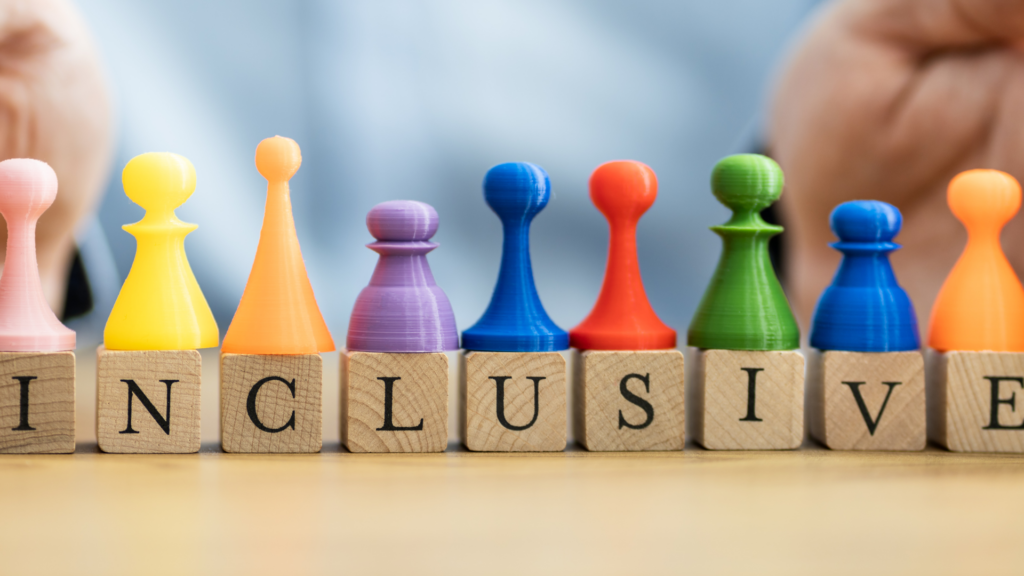There is a lot of talk about “inclusive culture” in the workplace. But what does it actually mean? In its purest form, an inclusive culture is about creating an environment where every individual feels valued, respected, and empowered, regardless of their background, identity, or differences. It goes beyond just diversity numbers or token gestures of inclusivity. Instead, it’s a mindset, a set of values, and a commitment to nurturing a sense of belonging for all.
According to research, businesses with inclusive cultures tend to have higher employee satisfaction, retention rates, and overall productivity. So, it’s important that workplaces work towards creating an inclusive culture.
Let’s talk about the buzzword that’s been floating around these days – inclusive culture.
No One Left Behind
At its heart, an inclusive culture is about ensuring that no one is left behind. It recognizes that diversity is not just a box to tick, but a wellspring of unique perspectives, experiences, and talents. Inclusive cultures actively seek out and embrace this diversity, understanding that it’s the lifeblood of innovation and progress.
In an inclusive culture, individuals aren’t just tolerated; they are celebrated. Differences in race, gender, sexual orientation, religion, ability, and every other facet of identity are not barriers but bridges. It’s a place where every voice is heard, and every person has a seat at the table.
The Power of Empathy
Empathy is a cornerstone of an inclusive culture. It’s about understanding the experiences and challenges of others, even if they are different from your own. It’s about walking in someone else’s shoes, even if those shoes are a different size, shape, or color.
When empathy is woven into the fabric of an organization or society, it becomes a powerful force for change. It drives us to recognize and dismantle biases, prejudices, and systemic barriers. It inspires us to advocate for fairness and equality, not just because it’s the right thing to do, but because we genuinely care about the well-being of others.
Beyond the Checklist
Inclusive culture is not a checklist of diversity quotas or a once-a-year diversity training session. It’s an ongoing, evolving commitment to self-reflection and growth. It means questioning our assumptions, challenging stereotypes, and being open to change.
An inclusive culture recognizes that unconscious bias exists in all of us, and it seeks to mitigate its impact through education, awareness, and accountability. It acknowledges that true inclusivity is not a destination but a journey, one that requires continuous effort and learning.
The Ripple Effect
When an inclusive culture takes root, it doesn’t stop at the office door. It extends into our communities and society as a whole. It becomes a ripple effect, as individuals who have experienced the power of inclusion in one sphere of life advocate for it in others.
Inclusivity is contagious. When we see the positive impact it has on our workplaces, we’re inspired to foster it in our homes, schools, and civic institutions. It’s a force that can reshape entire communities and societies, making them more equitable, harmonious, and just.
Inclusive culture isn’t just a buzzword; it’s a profound commitment to the values of empathy, respect, and equality. It’s about recognizing the worth of every individual, regardless of their differences, and creating a world where no one is left behind. It’s not a one-size-fits-all solution; it’s a dynamic, ongoing journey toward a more inclusive and equitable society. So, the next time you come across the term “inclusive culture,” remember that it’s not just a phrase—it’s a powerful call to action for a better, more inclusive world for all.
So, are you ready to be a part of this change? It starts with education and awareness. Take the first step. Explore our DEIB training and together, let’s build a world where everyone feels valued and included.
The journey towards a more diverse, equitable, inclusive, and belonging society begins with you. Let’s make it happen
PS. Watch this insightful episode of Catherine’s Corner where Catherine and Justin Jones-Fosu, Founder and CEO of Work. Meaningful. discussed D&I and the inclusive mindset.
Written by: Cleo Tubon



